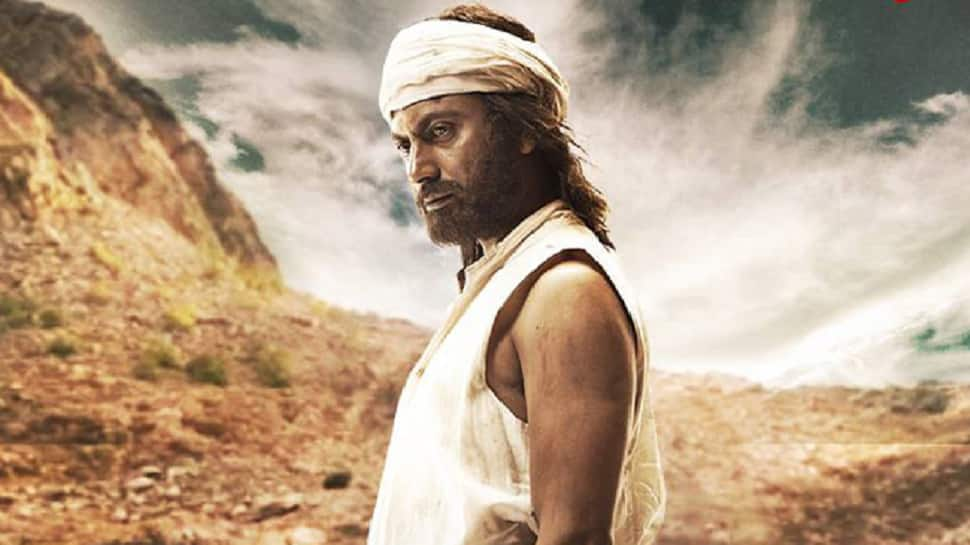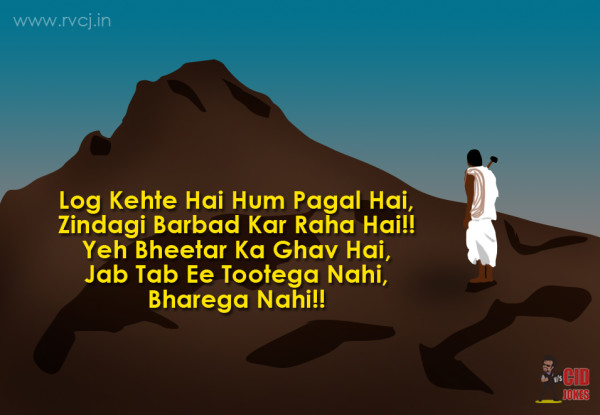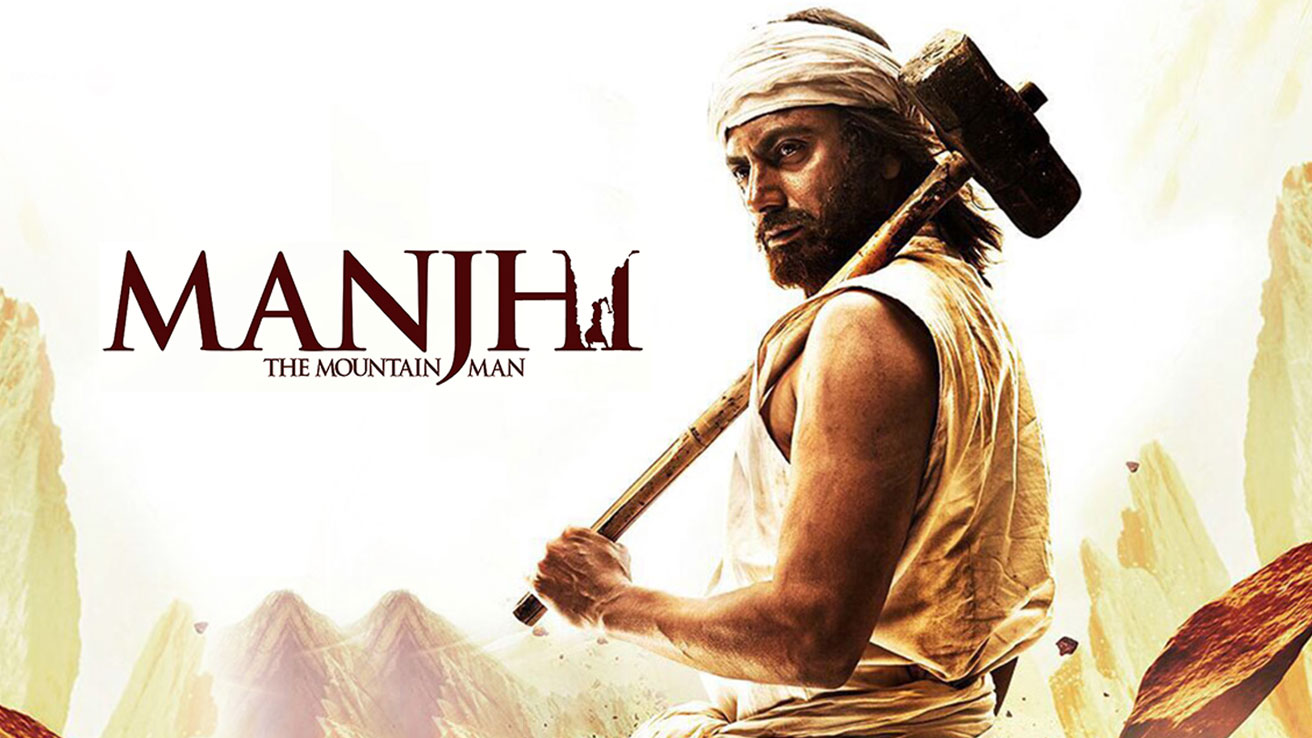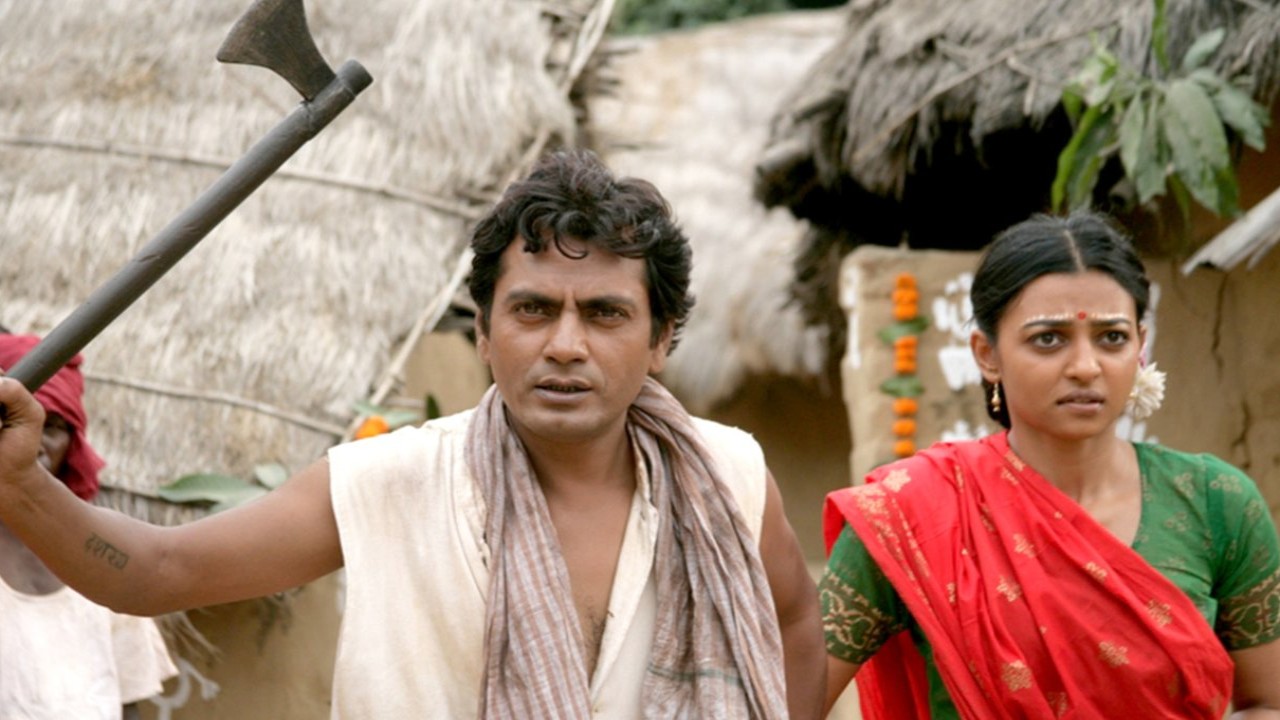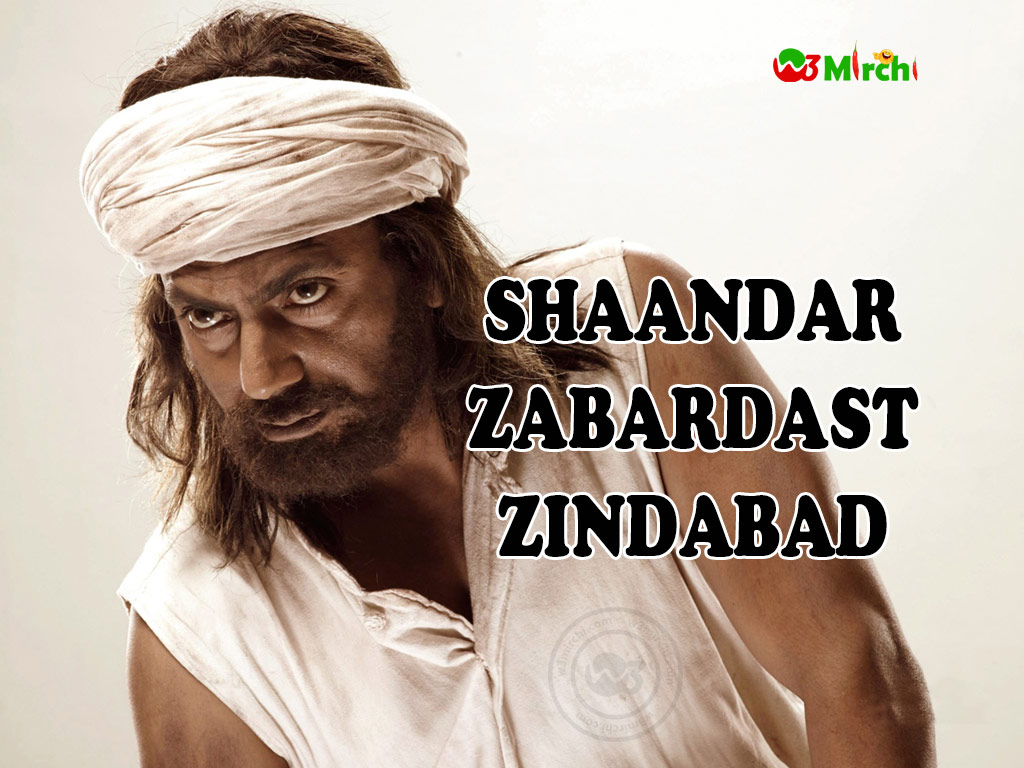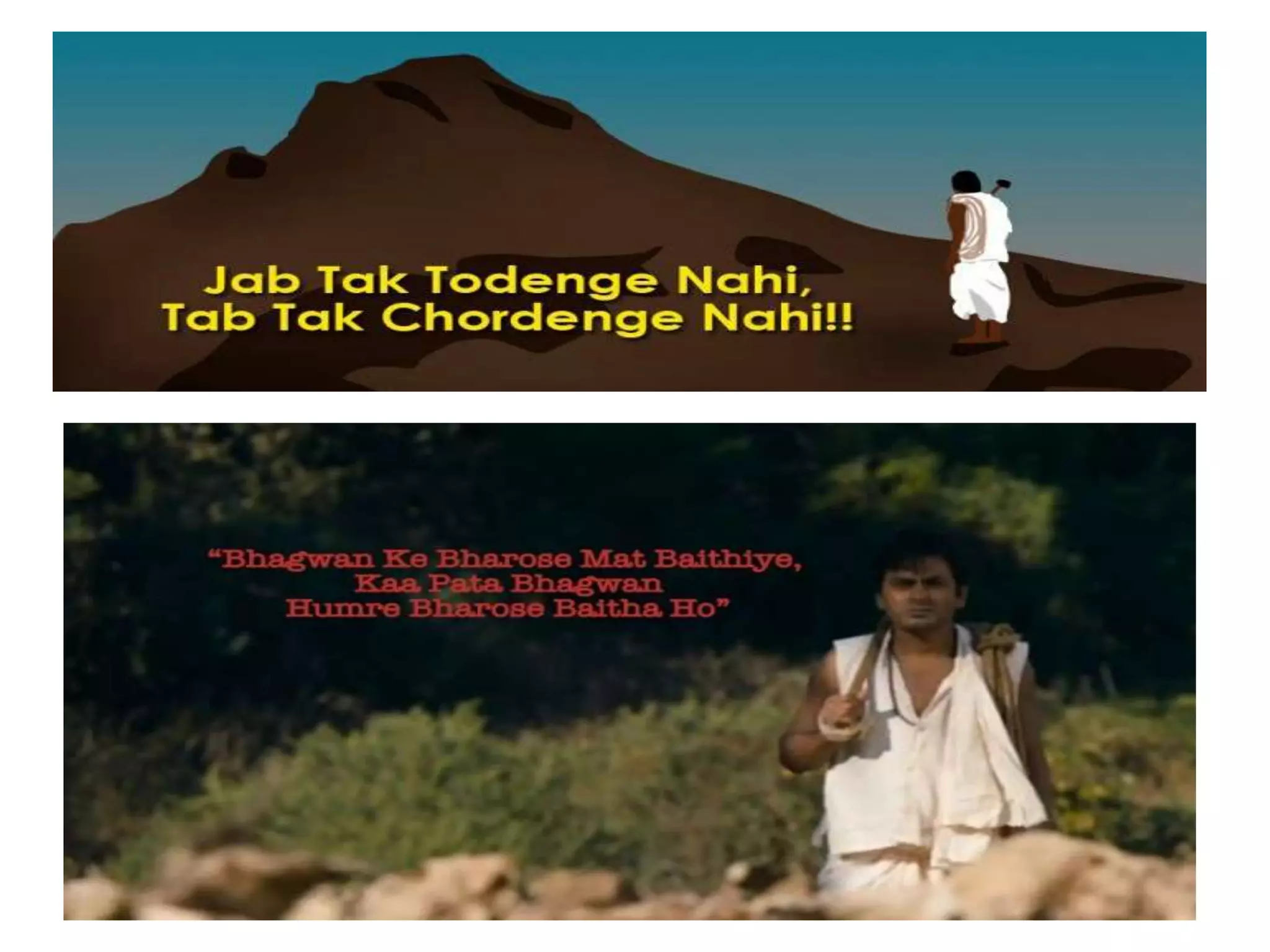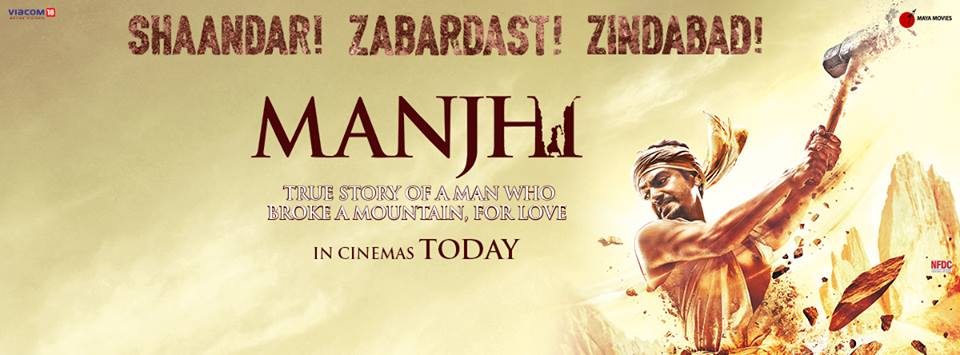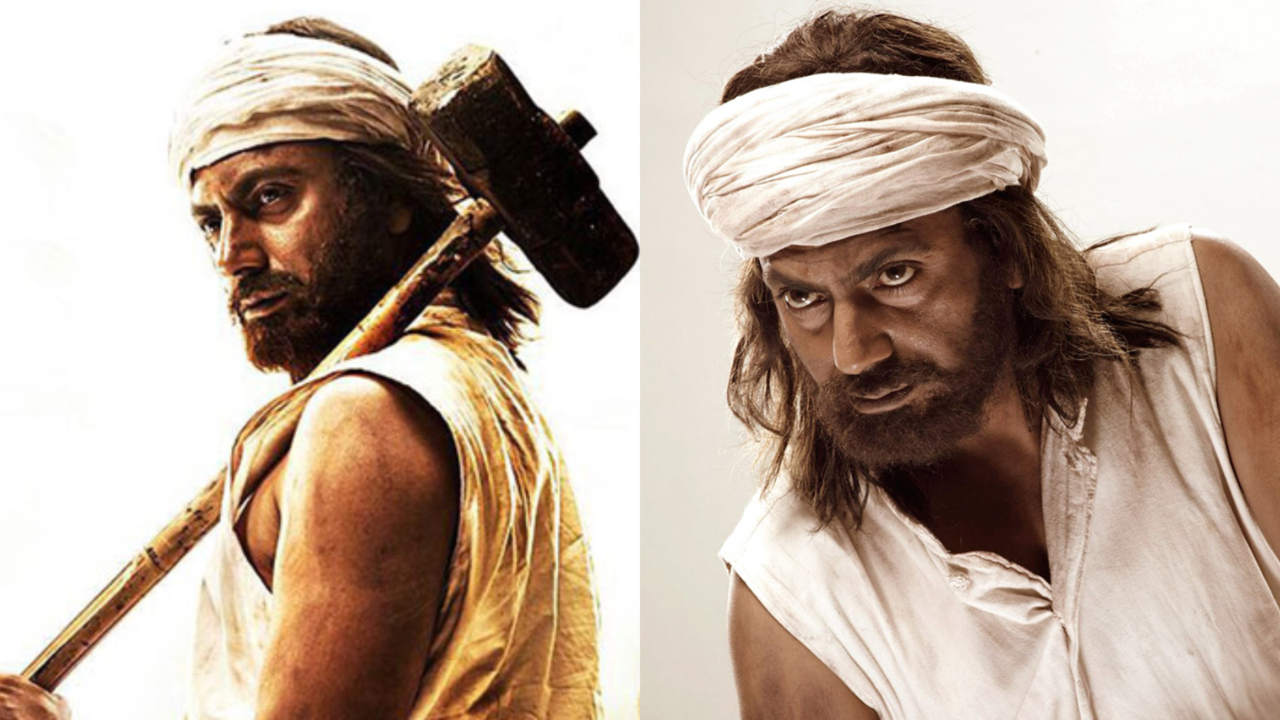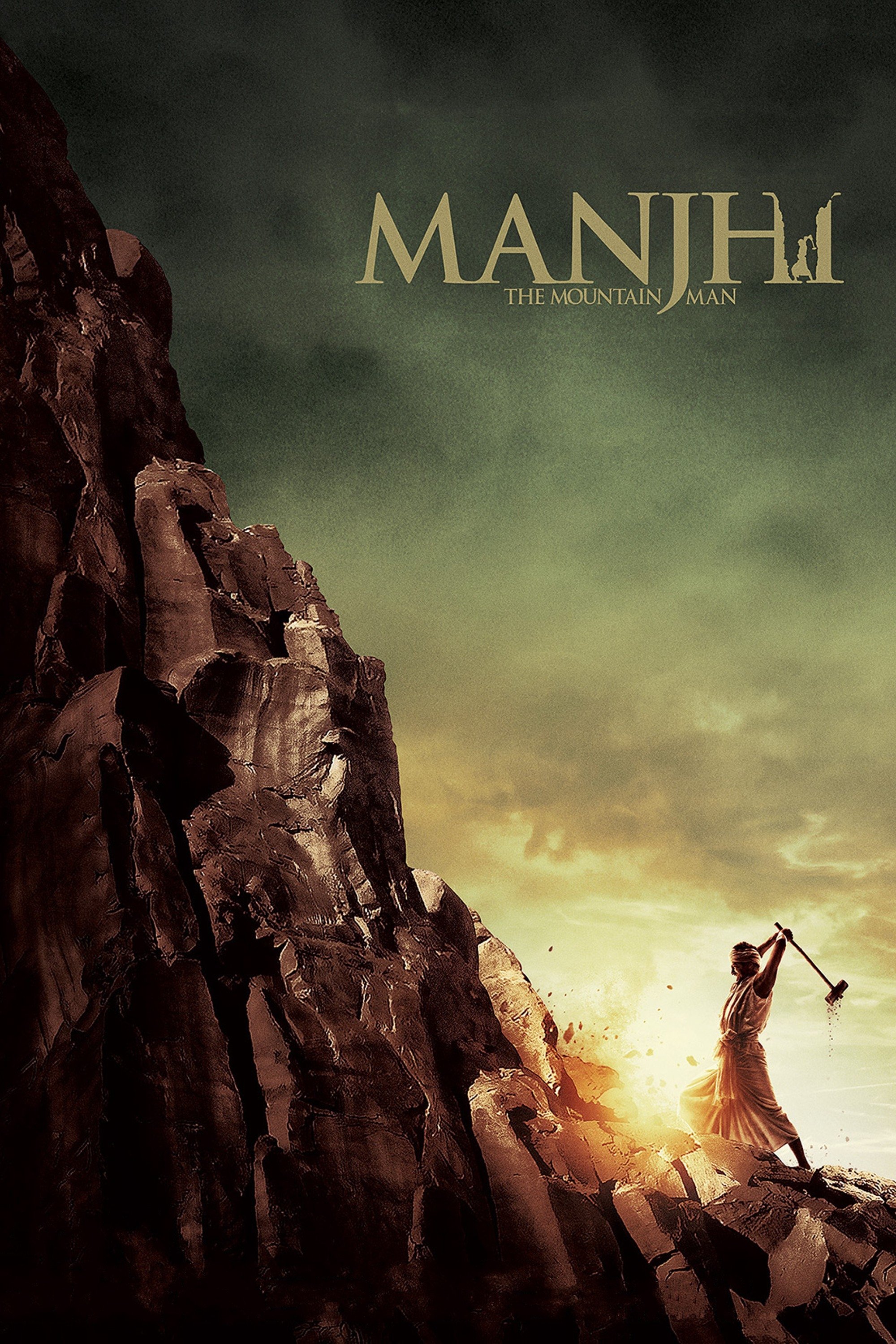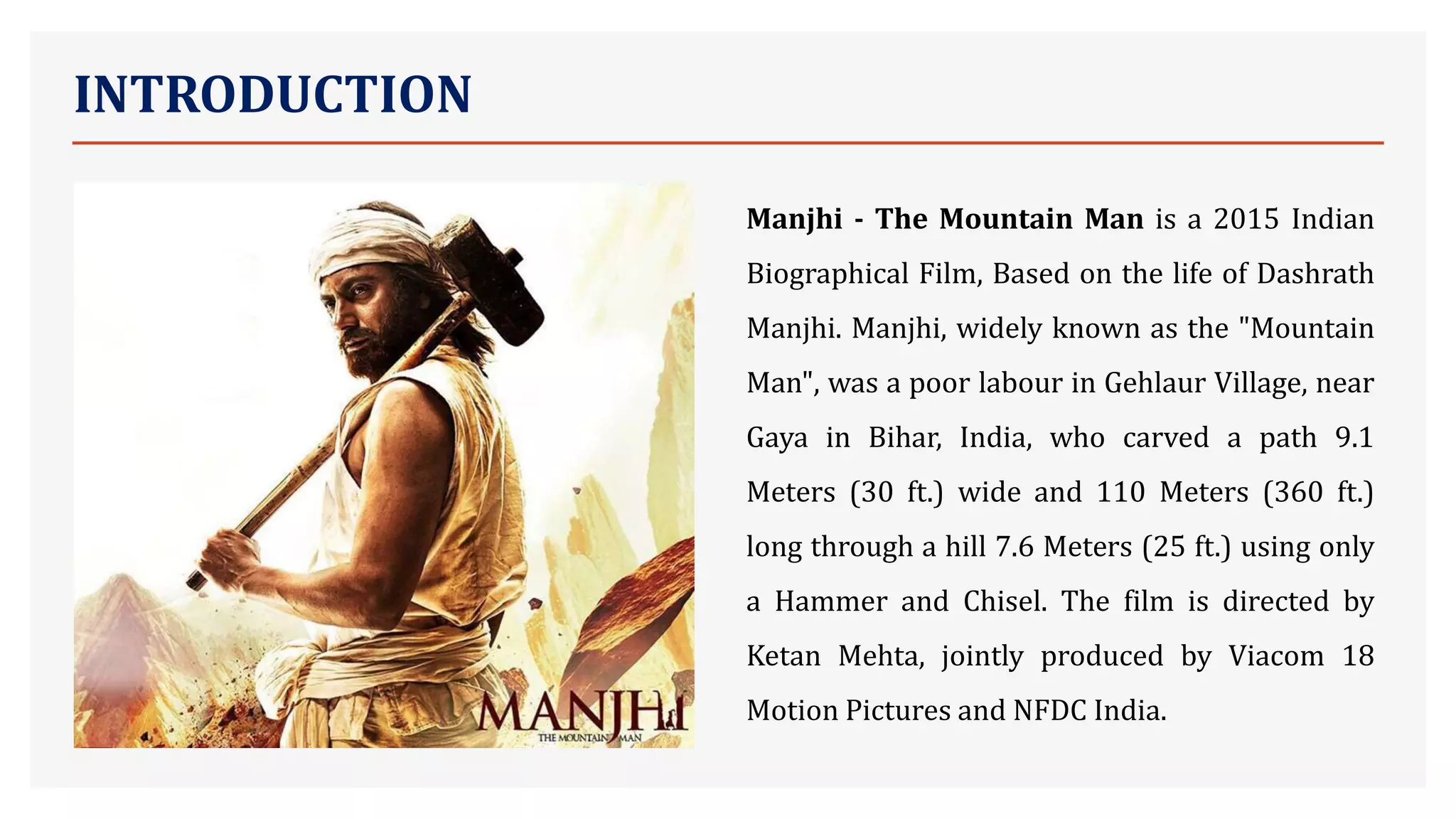Manjhi The Mountain Man Dialogue In English

Ever heard of a guy who literally moved a mountain? I’m talking about Dashrath Manjhi, the real-life Mountain Man from India. His story is way more than just pickaxes and rocks – it’s about love, determination, and some seriously unforgettable lines!
Forget dramatic speeches and philosophical ponderings. Manjhi’s dialogues are raw, honest, and sometimes, downright funny. They’re like little nuggets of wisdom wrapped in a whole lot of grit.
Simple Words, Powerful Impact
One of the most famous lines encapsulates his unwavering commitment. It's not some flowery prose, but a declaration of intent: "Bhagwan ke bharose mat baitho, kya pata bhagwan tumhare bharose baitha ho". This translates to "Don't sit relying on God, what if God is relying on you?"
It's a simple statement that challenges the listener to take action. It speaks to the core of Manjhi's spirit – a refusal to be passive in the face of adversity.
Imagine him saying this, dust flying, sweat dripping, after another day of chipping away at that behemoth. It's pure inspiration!
Love and Loss: The Driving Force
The reason Manjhi started this monumental task? His wife, Phaguni Devi, sadly passed away because she couldn't reach a doctor in time due to the mountain. This is where the dialogue gets really poignant.
While the movie dramatizes the love story, the core remains true. Manjhi’s silent grief, expressed through his relentless work, speaks volumes.
He didn’t need grand declarations. Every swing of the pickaxe was a testament to his love and loss, a conversation without words.
Confronting Doubt and Ridicule
Naturally, people thought he was crazy! They probably said things like, "You can't move a mountain alone!" But Manjhi probably just shrugged and kept hammering.
The film captures this beautifully. The villagers' skepticism, the authorities' indifference, none of it deterred him.
His response wasn't a fiery speech; it was the steady rhythm of his work. He let his actions do the talking, proving that one person can make a difference, no matter how impossible it seems.
More Than Just a Mountain
The mountain wasn't just a geographical obstacle; it was a symbol. It represented poverty, lack of access, and the apathy of the system.
Manjhi's struggle became a fight against all these things. His dialogue, even in its simplicity, echoed the frustration of the common man.
When he says things like, "Yeh pahad bhi humari tarah ziddi hai" (This mountain is stubborn like us), he's connecting his own resilience to the enduring spirit of his people.
The Legacy of a Few Words (and a Lot of Work)
Dashrath Manjhi didn't leave behind a library of eloquent speeches. He left behind a road, carved through a mountain with his own two hands.
And his simple, powerful dialogues continue to inspire. They remind us that even the most daunting challenges can be overcome with determination, love, and a whole lot of hard work.
Next time you’re facing a seemingly impossible task, remember the Mountain Man and his unwavering spirit. Maybe, just maybe, you have a mountain to move too.



